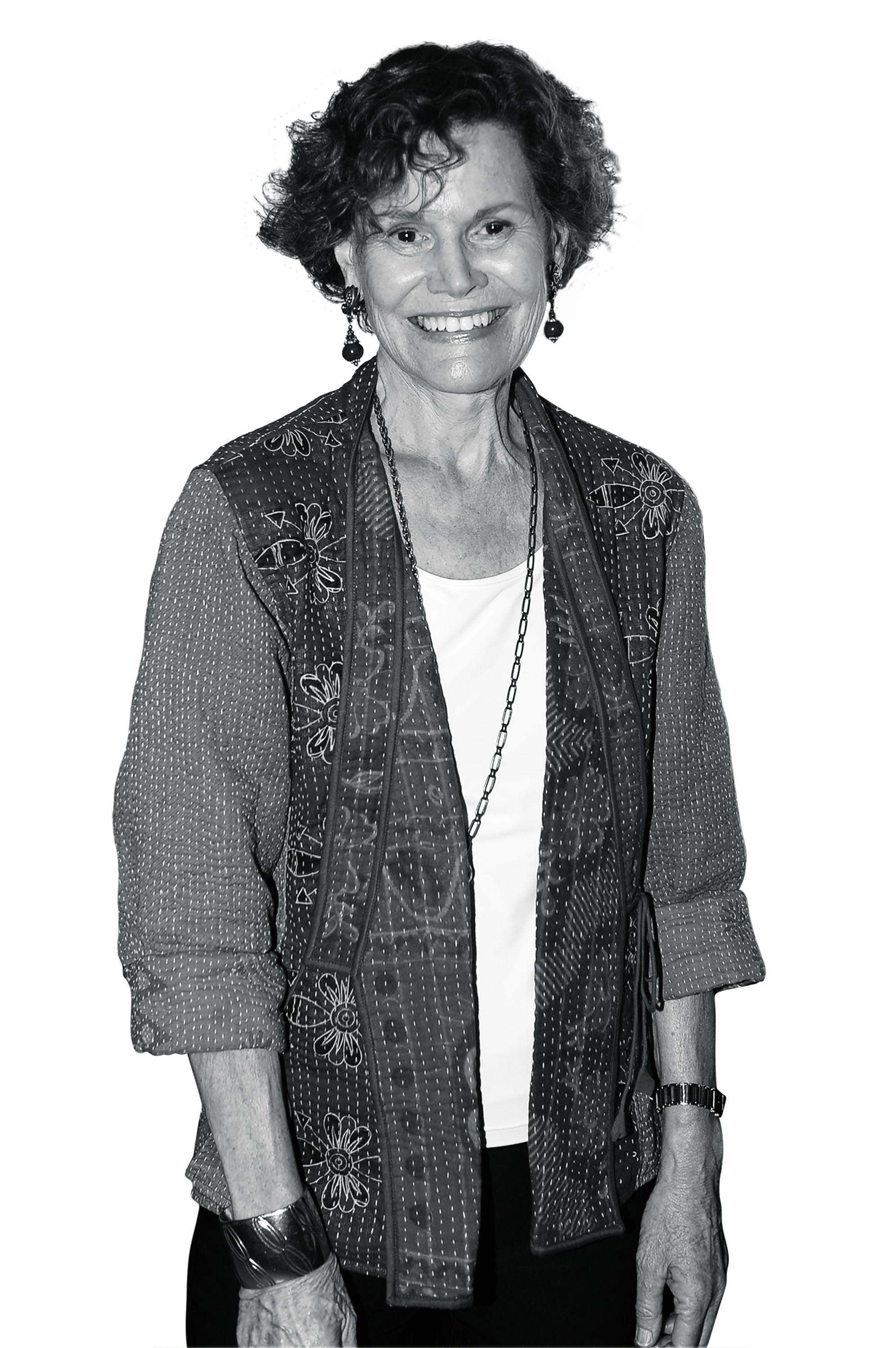
The three plane crashes in In the Unlikely Event really happened in 1950s New Jersey, where you grew up. How much of your writing is based on your experience?
It’s inspired by those tragic events. My father was a dentist, like Dr. Osner in the book. He was called in to identify victims by dental records. I knew that, but I don’t remember thinking it through. Maybe I didn’t want to think about it. No one ever talked to any of us about it. We were just left to imagine it.
Why did you decide to write for adults again?
I never wrote young-adult novels. I know everybody calls me a young-adult writer, but the truth of it is there was no “young adult” when I was writing the books that you all remember. I hate labels. I mean, go back and forth and read whatever you want. Nobody should judge you for what you want to read, ever.
Are You There, God? It’s Me, Margaret taught me more about girls’ changing bodies than maybe my parents did. Were your parents open about such topics growing up?
No, no. No. There are some wonderful books today that parents can get their kids about puberty so they’ll know the facts. Fiction is more about where you are emotionally. So even though you may have learned facts from Margaret or some others, that’s not why I wrote those books. I didn’t write them as teaching tools. I just wanted to be honest.
Is that why your books have remained popular for so long?
If you had asked me all those years ago, “Will your books still be around when you’re 77?” I would have laughed. What a crazy idea. But how lucky I am that they are and that my readers are still there.
Which are your favorites?
I’m not as attached to Forever … as many of my readers. I’m attached to the books that brought me my first readers. The Fudge books brought me many of the boys, and Margaret brought me my first girl readers. My earliest readers are now 50-ish, the same age as my kids.
Where did the “We must increase our bust” catchphrase come from?
We all did that. That was just something we knew. I have no idea where it came from. It was preteen lore.
You’ve been very active in fighting against censorship. Have you heard of trigger warnings?
No, what are trigger warnings?
Some college students want trigger warnings in front of classics like Ovid that would say, “There’s going to be a reference to murder or rape here, so if you’re particularly sensitive to that, then don’t read this.”
That is making my blood boil! And I have heard of it, now that you tell me what it is. I mean, Please! Let’s grow up.
Why does it make you upset?
Why are we treating college students like babies? You’re supposed to be challenged in college. We can have our beliefs and still read and discuss things. We don’t have to become zealots and say, “This has to be removed, and this has to be removed” and “You have to be warned here because oh, my goodness! Oh, my goodness!” There are many, many challenges to books. All you have to do is look at a bulletin of the National Coalition Against Censorship or the ALA’s Freedom to Read newsletter and you will see that there are still plenty of things being challenged. The desire to censor or ban or challenge is contagious.
You tweet a lot about Mad Men. Do you have another show that can take its place?
My husband George and I like to have a series that we watch together when we’re in Key West. I watch The Americans. We both watch Girls. We like Girls.
Do you think Girls has inherited things that you began talking about decades ago?
She’s very smart on her own. She’s good, Lena Dunham.
–ELIANA DOCKTERMAN
FOR VIDEO OF OTHER INTERVIEWEES, GO TO time.com/10questions
More Must-Reads from TIME
- How the Economy is Doing in the Swing States
- Harris Battles For the Bro Vote
- Our Guide to Voting in the 2024 Election
- Mel Robbins Will Make You Do It
- Why Vinegar Is So Good for You
- You Don’t Have to Dread the End of Daylight Saving
- The 20 Best Halloween TV Episodes of All Time
- Meet TIME's Newest Class of Next Generation Leaders
Write to Eliana Dockterman at eliana.dockterman@time.com